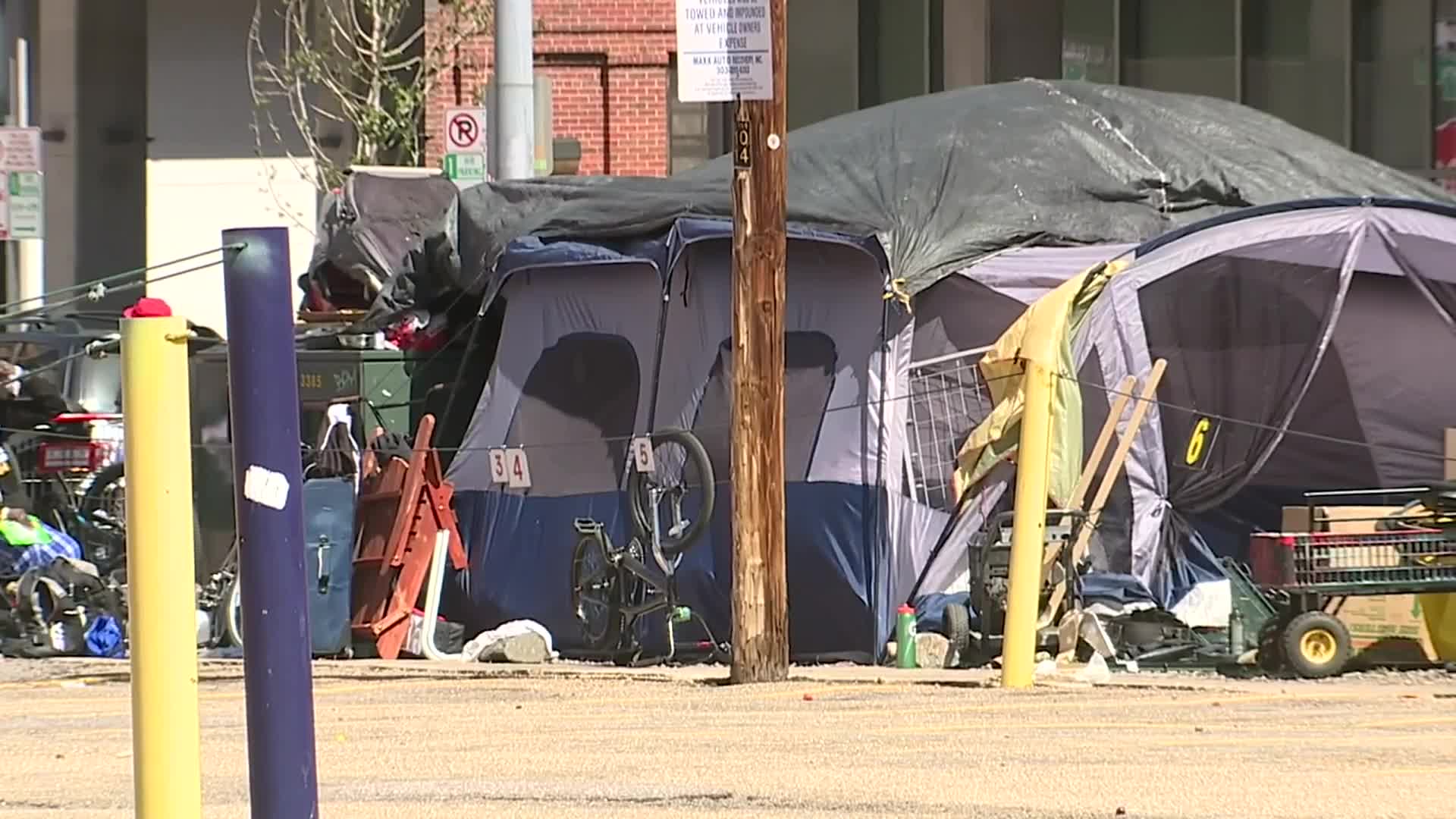DENVER — Colorado advocates told Denver7 they are alarmed by President Donald Trump’s new executive order that will make it easier for cities to remove unhoused people from city streets and forcibly hospitalize those facing mental health issues or drug addiction.
Trump described his executive order as “a new approach” to homelessness that is focused on increasing public safety and restoring public order.
“Endemic vagrancy, disorderly behavior, sudden confrontations, and violent attacks have made our cities unsafe,” Trump said in his executive order. “The Federal Government and the States have spent tens of billions of dollars on failed programs that address homelessness but not its root causes, leaving other citizens vulnerable to public safety threats.”
The executive order directs the attorney general “to seek…the reversal of Federal or State judicial precedents and the termination of consent decrees that impede the United States’ policy of encouraging civil commitment of individuals with mental illness who pose risks to themselves or the public or are living on the streets and cannot care for themselves in appropriate facilities for appropriate periods of time.”
On Friday, Trump cited encampments near the White House as an example of a problem he said has gotten worse in many cities.
“When leaders come to see me to make a trade deal for billions and billions and even trillions of dollars, and they come in and there’s tents outside the White House, we can’t have that,” Trump said.
Advocates for the unhoused in Colorado will make things worse and deprive people of their rights.
“We're extremely disappointed to see this executive order, mostly because it really looks at homelessness as an issue that should be addressed with criminalization enforcement and mandatory treatment, which just really undermines the whole issue of homelessness, which is a housing issue,” said Cathy Alderman with the Colorado Coalition for the Homeless. “His executive order takes no responsibility for actually solving homelessness.”
Alderman said the executive order also mischaracterizes the majority of unhoused people.
“This executive order does really mischaracterize how individuals are experiencing homelessness,” Alderman told Denver7. “It assumes that everyone experiencing homelessness has a substance use disorder or has a mental or a behavioral health issue. And that's just simply not the case.”
Alderman said what’s needed to solve homelessness is an individualized approach that takes into account factors that led to someone becoming homeless and that might be keeping them in homelessness.
“This executive order instead takes this criminalization, this enforcement, this authoritarian we-know-what's-best-for-you approach, which has never worked in the past to solve homelessness and won't work today,” Alderman said.
Metro Denver Homeless Initiative (MDHI) said it is reviewing the potential impact of the president's executive order.
"The Executive Order leaves many questions unanswered about how it will be implemented and what it means for communities working to address homelessness," MDHI said in a statement to Denver7. "We are monitoring updates and will continue to engage with local, state, and federal partners to better understand any potential impact. Our priority remains supporting individuals and families in accessing safe, stable housing and the resources needed to thrive.
The Colorado Coalition for the Homeless said studies and data have shown that programs focused on housing first with supportive services are the best way to resolve homelessness.
Trump said using civil commitment to place unhoused people into long-term institutional settings for treatment will restore public order.
“Surrendering our cities and citizens to disorder and fear is neither compassionate to the homeless nor other citizens,” Trump said. “My administration will take a new approach focused on protecting public safety.”
Trump’s executive order also prioritizes federal funding for local jurisdictions that enforce camping bans and for programs that require treatment.
Denver Mayor Mike Johnston has made resolving homelessness a central goal of his mayoralty and said he has developed a blueprint for other cities to follow. His office said it agrees that the focus should be on getting people into long-term treatment, but said the president’s approach was wrong.
“We actually agree with President Trump that we need to focus on helping people struggling with addiction and mental health issues get into long-term treatment – something we’re prioritizing through our innovative Roads to Recovery program that has helped hundreds of Denverites access and stay in treatment. But relying on enforcement and the jail system to do this just won’t work – we need federal funding for real, community-based treatment options,” Johnston’s office said. “While addiction is a real and pressing issue, it is far from the only cause of homelessness. We need real reform in bringing down the cost of housing and ensuring that folks aren't one unexpected expense away from being on the streets. We hope the Trump Administration will join us in prioritizing this need.”
Aurora uses a different approach to address homelessness. Aurora City Councilwoman Danielle Jurinsky called Trump’s executive order “excellent news for Aurora!”
Joe Rubino, a spokesperson for the City of Aurora, said the city has been in communication with the U.S. Department of Housing and Urban Development about the city’s future navigation campus, which will expand the city’s resources for addressing unsheltered homelessness.
“While the city is still reviewing and assessing the potential impacts of President Trump’s executive order, Aurora is encouraged that the administration is discussing funding for alternative housing methodologies,” said Rubino.
The campus is expected to open in November, and Rubino said no one will be turned away.







